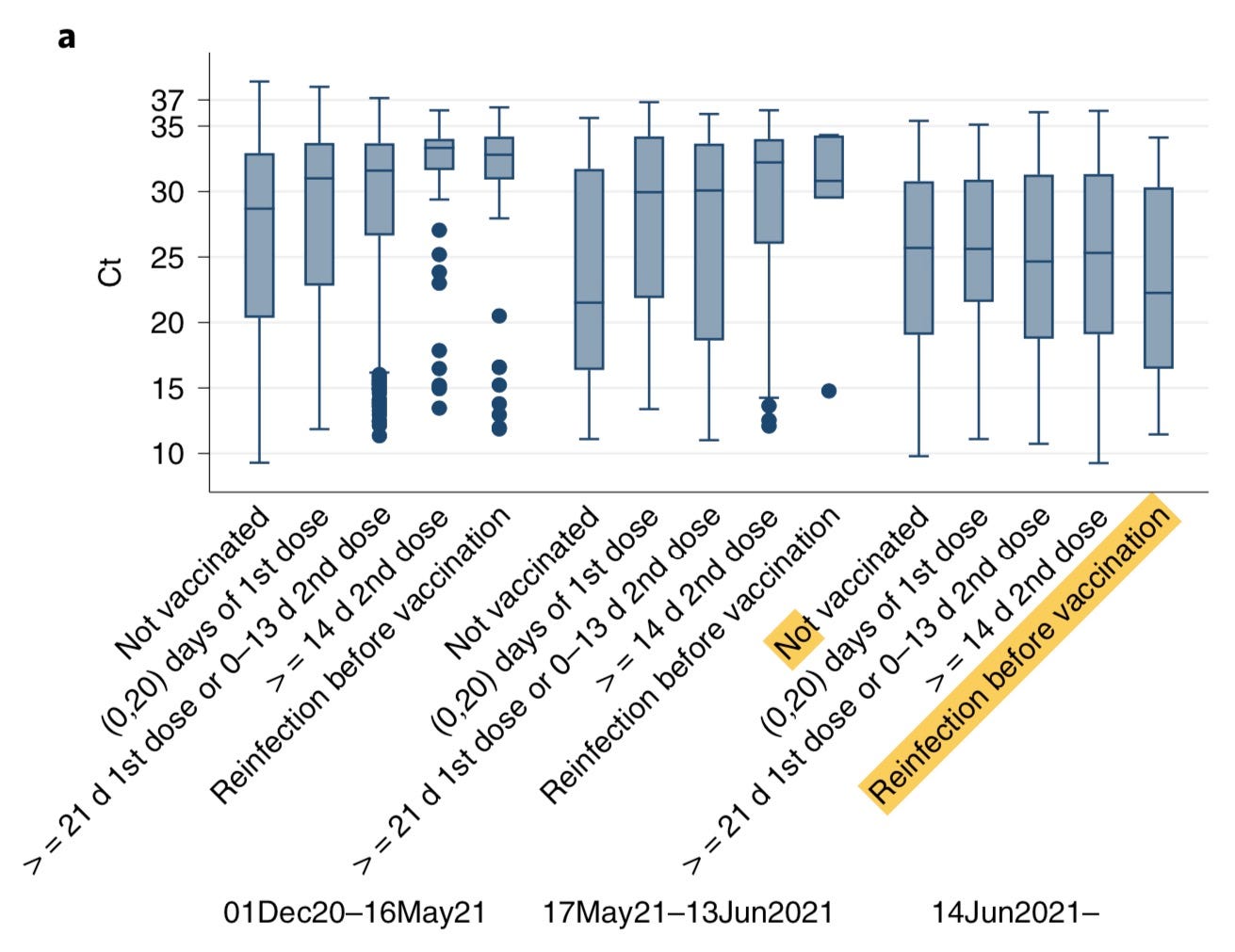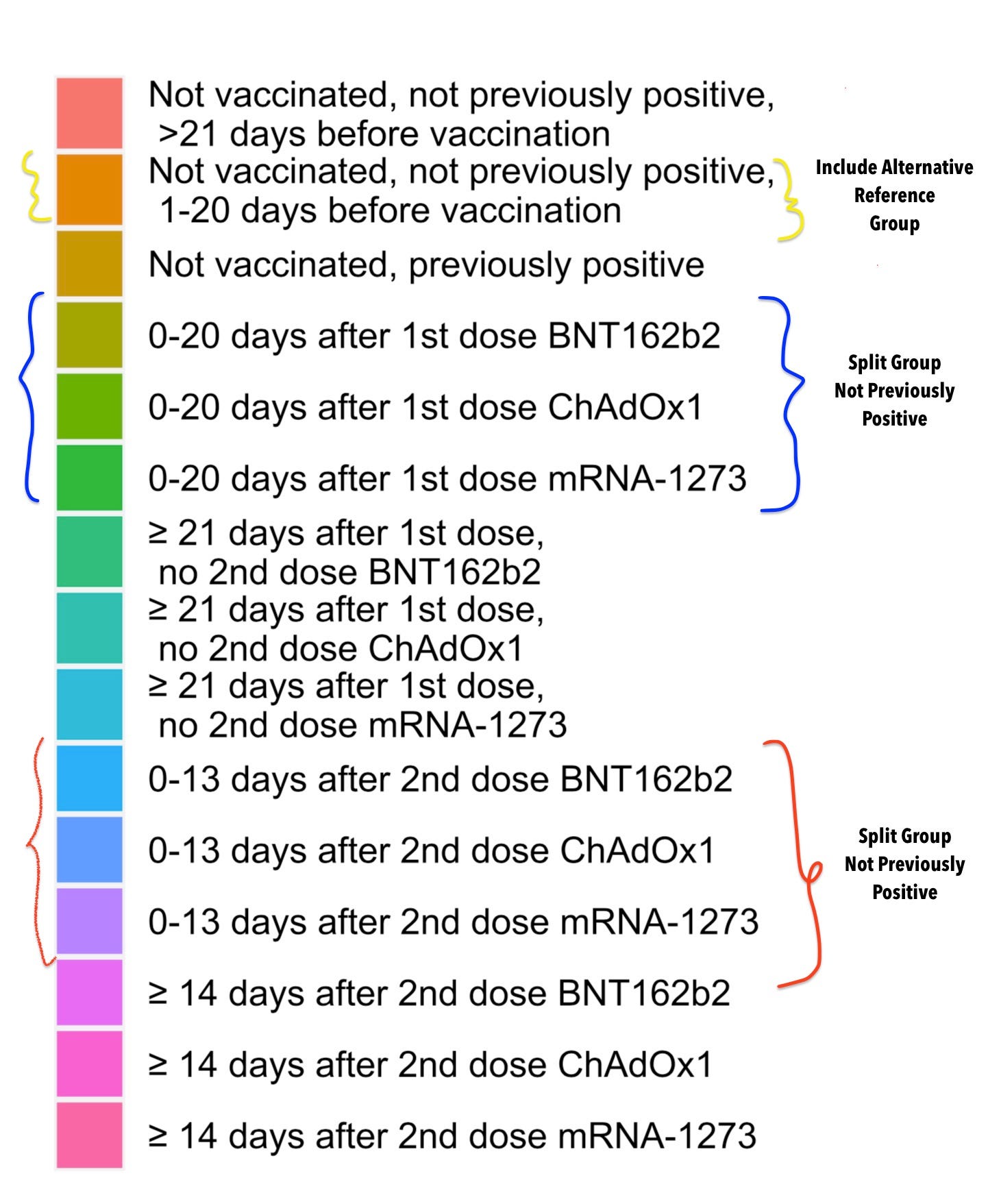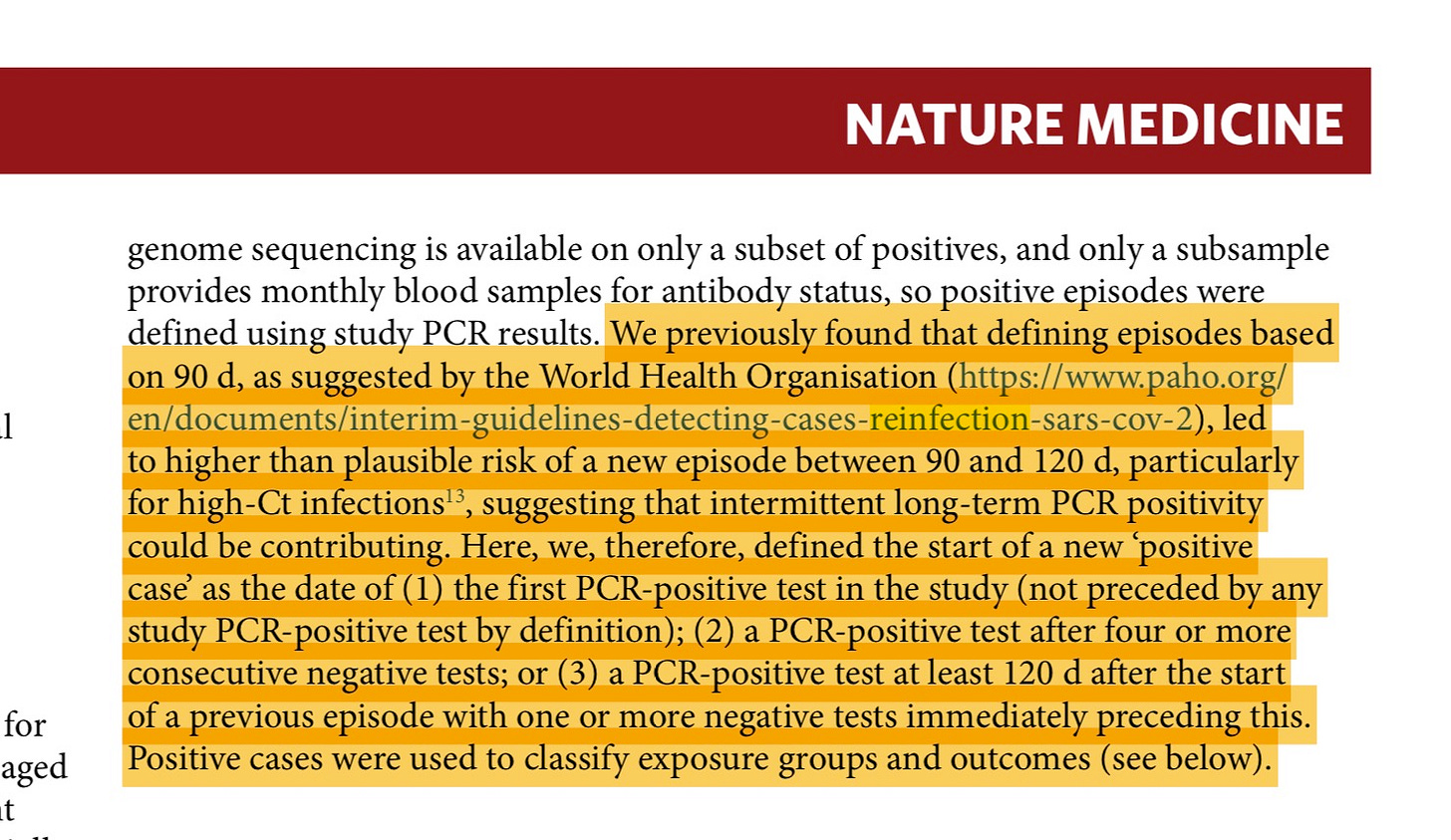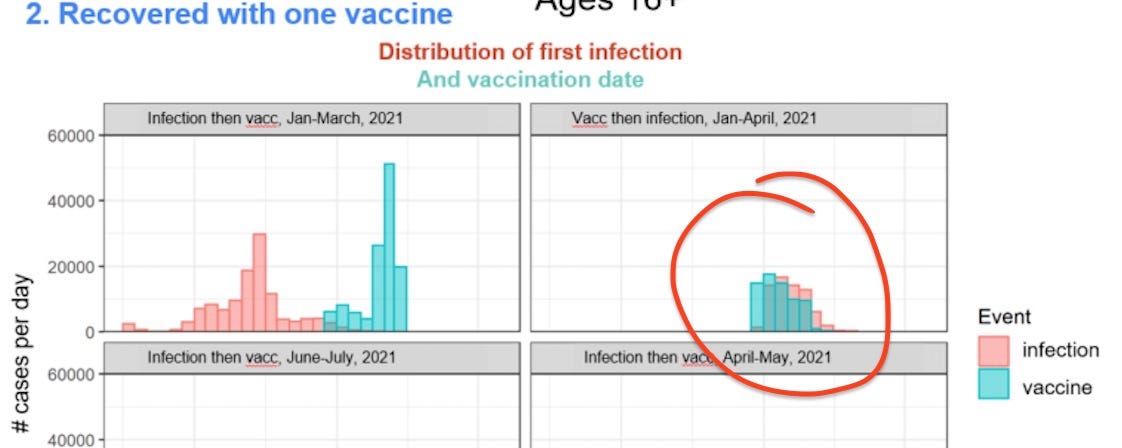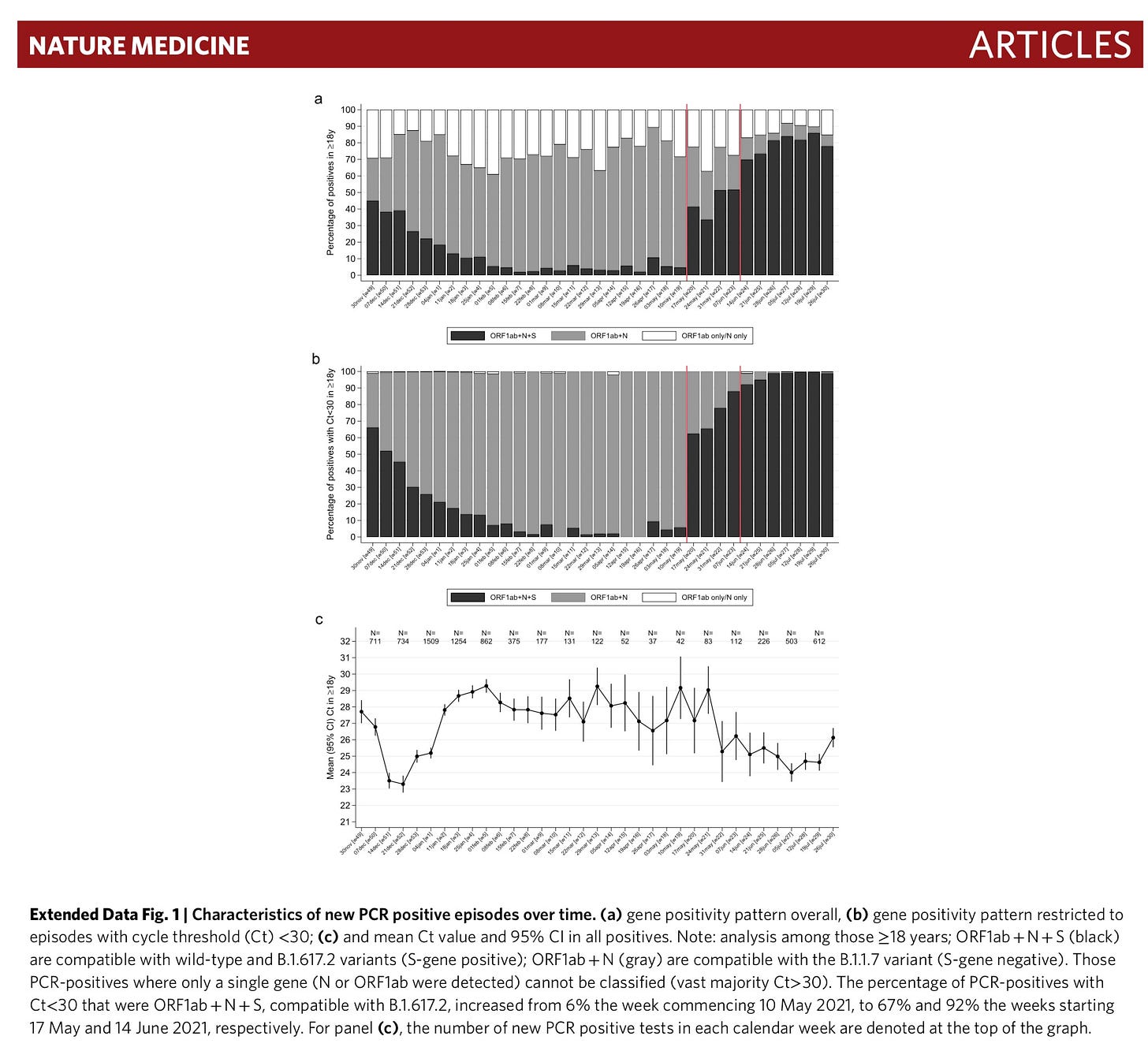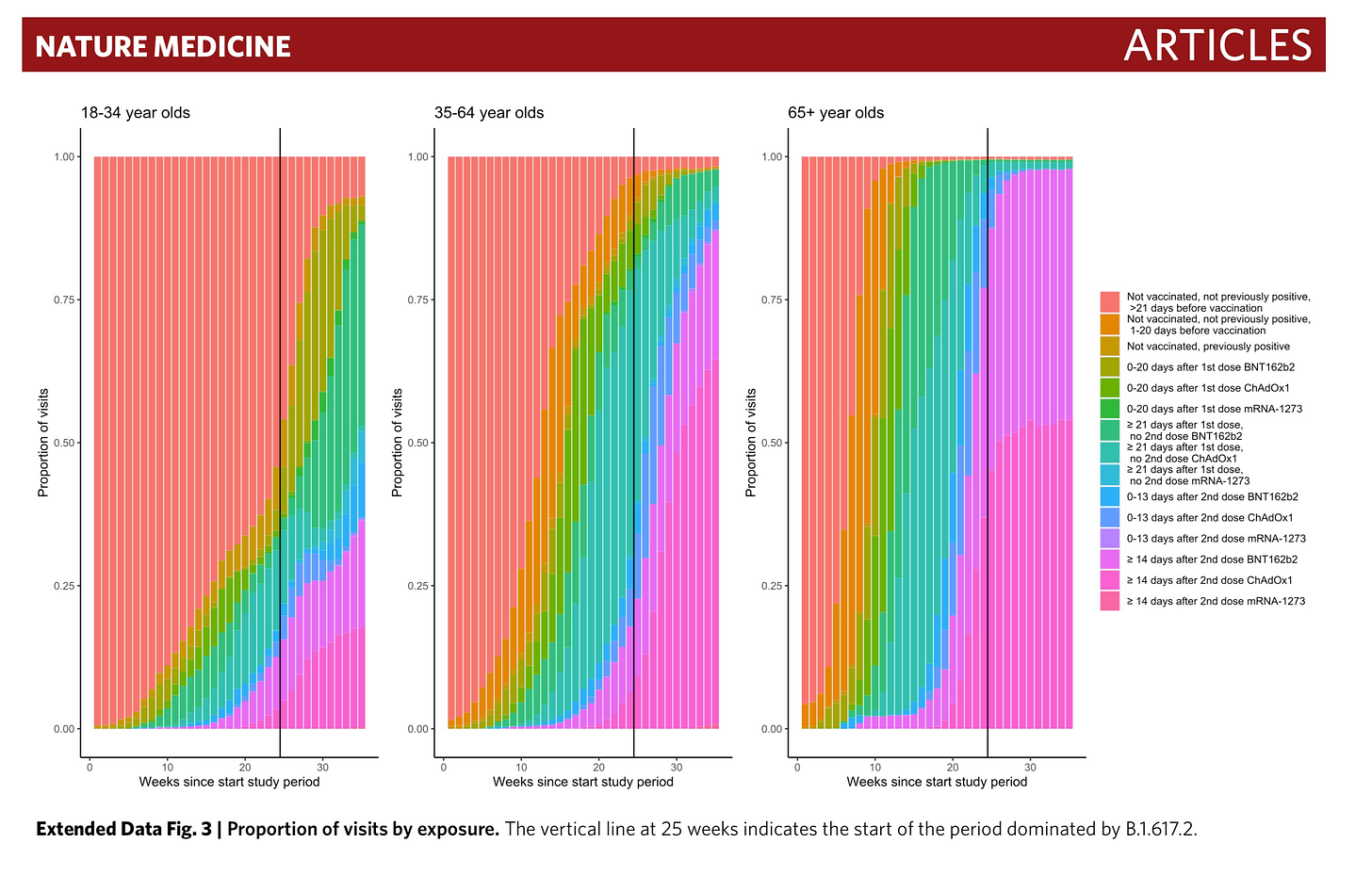"Reinfections" or Something Worse?
Nature Paper: Effect of Delta variant on viral burden and vaccine effectiveness against new SARS-CoV-2 infections in the UK
Something Alarming in this paper.
As usual, the disclaimers, “Unvaccinated” here is not unvaccinated but unvaccinated, without prior positives more than 21 days before vaccination. Leaves out most vulnerable and risk groups, like Care Homes, Hospitalized, HealthcareWorkers etc. And has sample that’s 18-64 or people who say “Yes” to get tested for surveys.
1. 'Reinfections before Vaccination' is not scientifically or empirically determined category according to the methods in the Paper.
Has to be empirically determined based on the genomic sequence and classified as
1. Ongoing or Chronic infection like HIV or Latent TB.
2. Viral re-activation like Herpes Zoster.
3. Re-infection with a different SARS-COV-2 virus
4. Co-infection 1/2/3 Together.
If this group is carrying highest viral load during delta infection, it’s important to have negative tests before vaccinations are administered.
Since we do not know if those who were vaccinated were negative or positive before vaccination, calling it re-infection is empirically unjustified.
Since SARS-COV-2 is a novel virus, we cannot rule out the most obvious and potent threat of viral reservoirs and viral reactivation after vaccination which is an acute immune modulating event.
Caution those who have been infected before from getting vaccinated, and if they do, they should consider a far less immunogenic dose.
I am certain that if you change the reference group from "not vaccinated, not previously positive, >21 days before vaccination" to "not vaccinated, not previously positive, 1-20 days before vaccination" then you will be able to safely eliminate the possibilities that I have listed above based on the VE.
If the VE is negative beyond recognition and is strongly dose dependent (i.e. the greater the vaccine dose/per body weight/per age group), then we may not be able to eliminate the possibility that the immunological relevance of the event may have clinical, and epidemiological relevance (Causing severe outcomes/safety or spreading disease).
If that matches with risk of hospitalizations and severe outcomes after vaccination, then we cannot assume it’s a healthy participant artifact or confounding bias like timing.
Bonus:
Using The WHO guidelines to automatically assume someone is a re-infection after 90 days rather than a persistent infect or viral reactivation will produce bogus re-infection charts like this.


But the authors note that this is silly in the paper.
So why do they believe it’s okay to tell people that persistent infections are re-infections when they might not be? Do we know the safety of vaccinating people with persistent infections? Does it lead to more severe outcomes. They never checked for that in this study as the design restricted to only good outcomes.
Look at this little Miracle from Israeli Ministry of Health Data they revealed of people infection right after vaccination. Look at the shape/phase of the curves in Vaccinated then Infected.
This is consistent with viral-reactivation. and I am afraid, UK data might be suggesting that these people were re-infected before vaccination. Unless they have proof, they shouldn’t claim it’s reinfection. As they are carrying the largest viral load from their 20 person group.
Supplementary:


